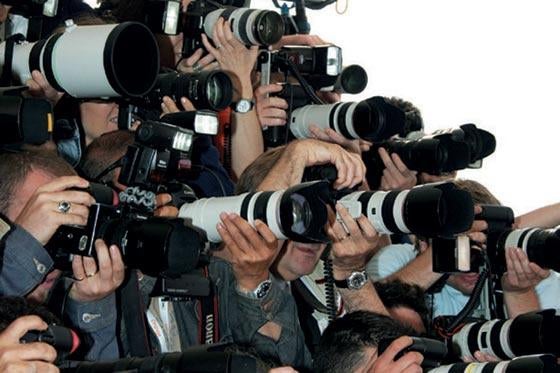
The British Press Photographers’ Association has hit back at the ‘one-way traffic’from witnesses criticising photographers at the Leveson Inquiry.
The organisation has now asked if it can be added to the list of those giving evidence under core participant status, amid fears the impressions is being given that ‘each and every one of us is the worst kind of citizen paparazzi”.
The BPPA claimed that the weight of commentary during the opening weeks of the inquiry makes press photographers ‘subject to explicit or significant criticism during the inquiry proceedings or in its report”.
‘As a profession attracting a great deal of criticism we would further contend that such a diverse group will not be represented in an equitable and fair way at an inquiry where such representation is both vital for a large and key group of professionals, and for the inquiry’s ability to hear and consider the widest range of informed opinions,’it said.
‘Press photographers are, for various reasons, the very visible face of the UK print media.
‘Because of this we are regularly subjected to false attribution and accusations as well as verbal abuse from members of the public and from a significant number of people who work in the celebrity, entertainment and even law and order industries.
‘The continuous use of pejorative terms such as ‘paparazzi’ about the widest spectrum of news photographers harms our collective reputations.”
Celebrity claims
Among the allegations made at the inquiry are Hugh Grant’s claims that freelance paparazzi are being recruited from the criminal underworld and that one almost ran over the grandmother of his newborn baby.
Grant told the inquiry last week there were two kinds of press photographer: staff photographers who ‘just occasionally show a modicum of decency’and the ‘much worse’freelance paparazzi who were ‘increasingly recruited from criminal classes’and have criminal records.
Other celebrities including comedian Steve Coogan, actress Sienna Miller and singer Charlotte Church have also been fierce in their criticism of photographers.
The BPPA said it wants to provide evidence to the inquiry on:
• The culture and practices of professional press photographers
• The market place for news pictures and how it affects those cultures and practices
• The problems that the market for celebrity images is causing
• The dangers of introducing French style privacy laws
• The need for cooperation between all parts of the media to establish clear and enforceable ethical guidelines and codes of behaviour and etiquette
• Proposals to help control the problems of unethical photographers and citizen journalists with cameras.
The organisation added: ‘The BPPA can speak for press photographers who, because of the highly fragmented nature of our employment may well speak to the BPPA when they would not speak to the inquiry.”
The membership of the BPPA is made up of: directly employed photographers (24 per cent), employed on fixed or rolling contracts (12 per cent), working through agencies as freelance photographers (18 per cent) and entirely freelance (46 per cent).
Email pged@pressgazette.co.uk to point out mistakes, provide story tips or send in a letter for publication on our "Letters Page" blog
